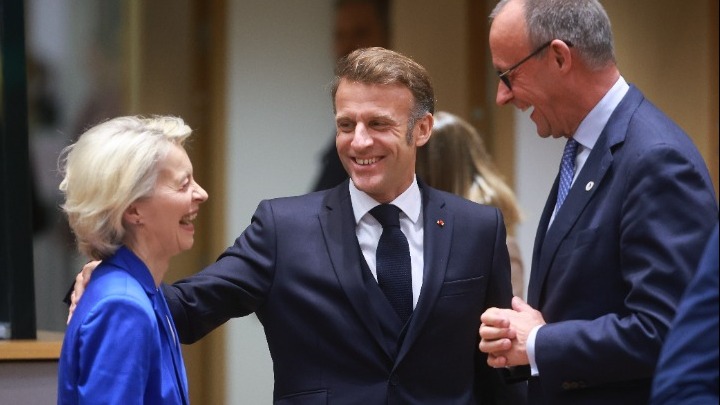
The European Council’s conclusions stress the necessity for Europe to enhance its ability to address immediate and future challenges and threats in a coordinated and comprehensive manner, a sentiment underscored by Greece.
Kyriakos Mitsotakis: The defensive view of Europe extends to 360 degrees, something that has always been a constant Greek position
Member states are urged to take the lead in implementing priority areas identified at the EU level, in alignment with the roadmap for European defense readiness developed by the High Representative. The emphasis is on using strategic orientation to enable Europe to develop modern capabilities in full coherence with NATO, highlighting support for the European Defense Agency through a cohesive overall approach.
Moreover, member states are called to finalize the establishment of capability coalitions in all priority areas by year-end and to initiate specific projects slated to commence in the first half of 2026. The aim is to lessen strategic dependencies, address critical industrial gaps, and ensure the sufficient supply of equipment in the necessary quantities and timelines.
Simultaneously, the European Council denounces violations of airspace by various member states and stresses the importance of addressing threats at the EU’s remaining borders, underscoring the need to defend all land, air, and maritime borders. Immediate threats on the eastern flank of the EU and the provision of targeted support to member states are highlighted as priority concerns.
The conclusions also point to the ongoing hybrid attacks from Russia and Belarus, along with recent airspace violations, emphasizing the need for close cooperation among member states to strengthen their defense and security capabilities. EU leaders resolved to prioritize projects aimed at enhancing collective capabilities in anti-drone and air defense through coordinated efforts.
Additionally, member states are encouraged to expedite the joint development of space resources and ensure the effective operation and integration of the European defense market, including cross-border access to defense supply chains.
The issue of oversight is raised, emphasizing the need for effective political coordination to track progress and bolster the work of defense ministers within the Council concerning Europe’s defense readiness, supported by an annual defense readiness report.
Finally, the conclusions highlight the significance of close collaboration with Ukraine and its integration into the European defense industry. (23/10/25)












Leave a Reply